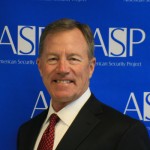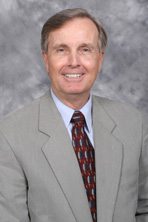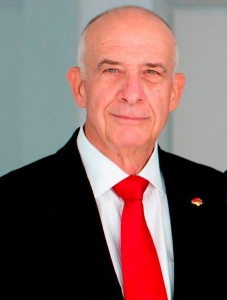| Date |
November 30, 2017 |
| Time |
10:30am – 11:30am |
| Location |
Capitol Visitors Center, Room 209 |
U.S. national security is based on the military’s ability to respond to a crisis at home or abroad within a moments notice. Any potential threat to that readiness is a threat to our national security. As the climate continues to change, our bases are seeing increasing floods, heatwaves, and wildfires, impacting the military’s ability to train troops and respond to threats.
Recent regulations and legislation have begun to address the growing threat of climate change to resiliency and readiness. One amendment in the House version of the National Defense Authorization Act (NDAA) notes that the Department of Defense must be able to plan for the impact climate change will have on “threat assessments, resources, and readiness; and military installations must be able to effectively prepare to mitigate climate damage in their master planning.” In the report to accompany the Senate version of the 2018 NDAA, the committee asks that the Secretary of Defense performs a “comprehensive threat assessment” and “implementation master plan” by March 1, 2018. These are just a few examples of the regulations and legislation designed to protect our national security and build resiliency in the face of a changing climate.
Join us on November 30th, 2017 at 10:30am as we discuss the range of security threats posed by climate change, whether these regulations may ease those threats, and how we can build further resiliency and security into the future.

Speaker Biographies:
Brigadier General Stephen Cheney, USMC (Ret)

BGen Stephen Cheney, USMC (Ret) is the Chief Executive Officer of the American Security Project (ASP).
He is a graduate of the U.S. Naval Academy and has over 30 years experience as a Marine. His career included a wide variety of command and staff positions with the operating forces and the supporting establishment. Gen. Cheney’s primary specialty was artillery, but he focused extensively on entry-level training, commanding at every echelon at both Marine Corps Recruit Depots, to include being the Commanding General at Parris Island. He served several years in Japan and has traveled extensively throughout the Middle East and Asia.
Other selected highlights of Gen. Cheney’s military career include tours as Deputy Executive Secretary to Defense Secretaries Cheney and Aspin; ground plans officer for Drug Enforcement Policy in the Pentagon; liaison to the Congressional Commission on Roles and Missions of the Armed Forces; and Inspector General of the Marine Corps.
Following retirement from the Marines, Gen. Cheney became the Chief Operating Officer for Business Executives for National Security (BENS), in Washington, D.C., and most recently was President/CEO of the Marine Military Academy in Harlingen, Texas.
Gen. Cheney is a graduate of the Marine Corps Command and Staff College, the National War College, and the University of Southern California. He was a military fellow at the Council on Foreign Relations in New York City, where he is a member. Additionally, he was also a member of the Secretary of State’s International Security Advisory Board and the Department of State’s Foreign Affairs Policy Board.
Gen. Cheney has been on the Board of Directors for ASP since 2006.
Lieutenant General Don Kerrick, USA (Ret)

Lieutenant General Don Kerrick served in the United States Army for 30 years and retired as a three-star General. At retirement, he was serving in the White House as the Deputy National Security Advisor to the President of the United States. He managed the nation’s deputies committee and was responsible for developing, implementing, and managing United States foreign and national security policies.
For five years after leaving the military, Don Kerrick served as Vice President, General Dynamics Advanced Information systems. Subsequently, he is the Managing Director of Kerrick Consulting providing consulting services for select defense and intelligence clients. He serves on the Defense Intelligence Agency Advisory Board and is a Florida Southern College Trustee.
Don Kerrick served, by Presidential Appointment, as a principal negotiator on the United States Balkans Peace Delegation that negotiated an agreement ending the Bosnian War. Later, he was appointed by the President to serve on the Steering Committee for the Protection of the United States Critical Infrastructure and developed the blueprint for the structure and procedures designed to protect national critical infrastructure.
Other significant military assignments include: Assistant to the Chairman of the Joint Chiefs of Staff; Chief of Staff/Staff Director, the National Security Council, The White House; Director of Operations, Defense Intelligence Agency; the Army Staff, Commander 701st Military Intelligence Brigade and Field Station Augsburg, Germany; and Commander 3rd Military Intelligence Battalion (Aerial Exploitation), Korea. Additionally, he is a rated pilot in both rotary and fixed wing aircraft and is a multi-engine instructor pilot.
Don Kerrick holds a Masters degree from the University of Southern California and a Bachelors degree and honorary Doctor of Diplomacy from Florida Southern College.
Lieutenant General John Castellaw, USMC (Ret)

John “Glad” Castellaw is co-founder and chief executive officer (CEO) of Farmspace Systems LLC., a provider of aerial (drone) services and equipment.
Following graduation from the University of Tennessee, Martin (UTM), he led Marines around the world while flying more than two dozen different aircraft. During his 36-year career, he served with the UN during the Siege of Sarajevo, commanded the American force in the multi-national security and stability operation in East Timor, and was the chief of staff for the U.S. Central Command at the height of the wars in Iraq and Afghanistan. He also commanded Marine Medium Helicopter Squadron 264 (REINFORCED), Marine Aviation Weapons and Tactics Squadron 1, and the 2d Marine Aircraft Wing. His last tours were in the Pentagon as head of Marine Aviation and then overseeing the Marine Corps budget.
Following his return to his Tennessee family farm, Castellaw co-founded the non-profit Crockett Policy Institute. As the former president, he created the “SOLDIER 2 CIVILIAN” program to help veterans find jobs in precision agriculture. Active in the local community, he is a director for the Bank of Crockett and serves with regional economic organizations.
Castellaw, a recognized national security expert, is a member of the USGLC National Security Advisory Council, lectures on National Security at UTM, serves on several Washington, DC based groups including the Nuclear Security Working Group (NSWG), the American Security Project Consensus, and the Climate Security Working Group (CSWG). He also consults with major defense firms and a Hollywood film company.
His honors, in addition to several military decorations, include membership in the UTM Army Reserve Officer Training Corps Hall of Fame, selection as the 1990 Marine Aviator of the Year, and as a recipient of the 2016 R. Clayton McWhorter Innovation Award given by the Ned Ray McWherter Institute. He was awarded the Order of Timor Leste (East Timor) by Prime Minister de Araujo for his service in restoring peace and security to that country.
Castellaw has provided commentary for various media outlets including the BBC, El Arabia, The Tennessean, The Commercial Appeal, The Knoxville News Sentinel, The Jackson Sun, and The Washington Times. He recently appeared in a National Geographic Network series on climate security.










